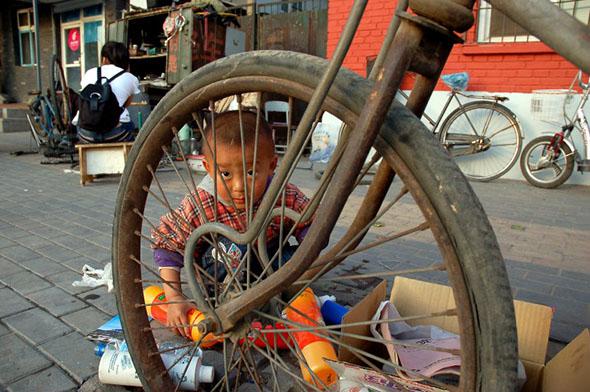This post originally appeared in Caixin.
When authorities in Macao, China, recently uncovered a prostitution ring, the most shocking aspect of the case was that its alleged mastermind was a 16-year-old boy from Chongqing. The teenager represents an extreme example of a larger problem that sees millions of China’s minors not attend school.
China is undergoing unprecedented urbanization. As vast as the urbanization is, no village in any corner of the country can avoid being swept up in this process. When adults leave their homes in rural areas and head to the cities to work, they either leave their children behind with relatives or bring them along. Because of the household registration system, also known as hukou, which links access to public services to residential status, the children of migrant workers are often refused admission to schools in cities. This means that no matter their origin or ethnicity, the children of migrant workers are particularly vulnerable to delinquency.
Without relatives and schools to protect them—and both are indispensable—many of these children lack the proper care, direction, and education they need at a very early age. In the best-case scenarios, guardianship is given to grandparents, but even then there are problems.
Nothing can replace the love and care of parents. Research shows that a growing number of “left-behind children” are not attending school. Without their parents’ care and discipline, these youngsters are obviously vulnerable to all manner of vice.
They are deprived of everything, except the company of other delinquents from the same background. Amid temptation, intimidation, and coercion, minors are often lured into truancy, theft, prostitution, or drugs. Other teenagers are most often the ones urging their peers to commit wrongdoing. Children brought along to the cities do not necessarily do any better. To date, despite repeated public calls, the country’s education authorities have done little to address the problem.
While migrant workers usually do not have problems finding work in the cities, their children’s schooling is another matter. Nonpublic schools run by caring people or by migrants themselves are mostly illegal on the grounds that they do not comply with standards. Meanwhile, local schools make it as hard as possible for migrant children to gain admission.
Take Beijing as an example. Parents are required to submit five documents, such as work certificates, residency permits, and documents signed by hometown authorities, before the school will admit a child. This is basically impossible unless village authorities agree to help. In essence, it’s a way of controlling the capital’s population by limiting the educational opportunities of migrant children. Schools in Beijing would rather have too few students than admit a single outsider.
More often than not this forces migrant children to return home, joining others left behind. Should they be unable to return home for some reason, they wander the city streets as juvenile delinquents in the making. Youngsters themselves are not too interested in staying in the countryside. We’ve seen that some of them are leaving for Macao, like the teenager from Southwest China, but it’s only a matter of time before they go elsewhere, including abroad.
When education authorities ignore their duty, children are left without options, and law enforcement must clean up the mess. The question is how law enforcement is going to manage when the number of delinquents surges. Should we continue to leave the children of migrant workers to fend for themselves?
